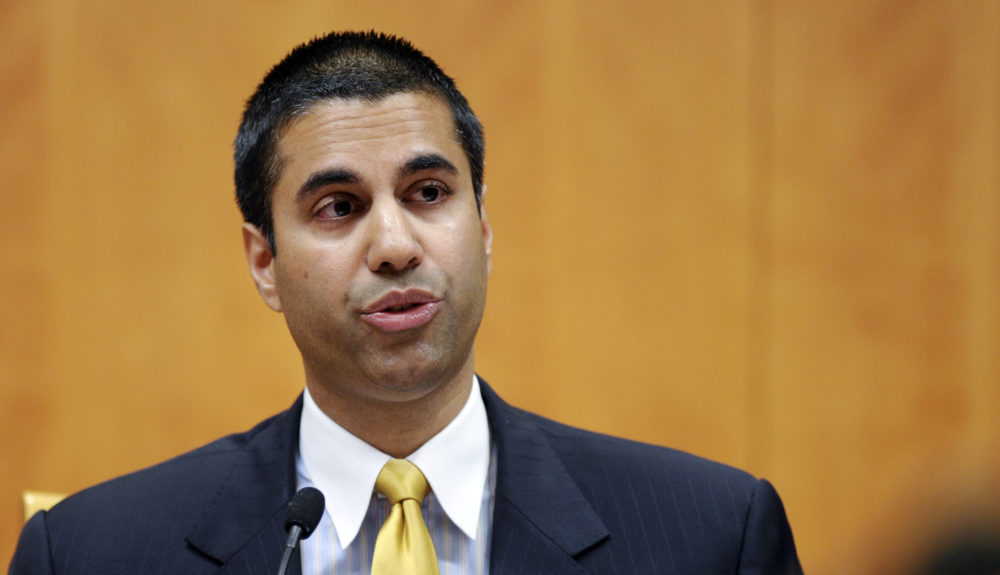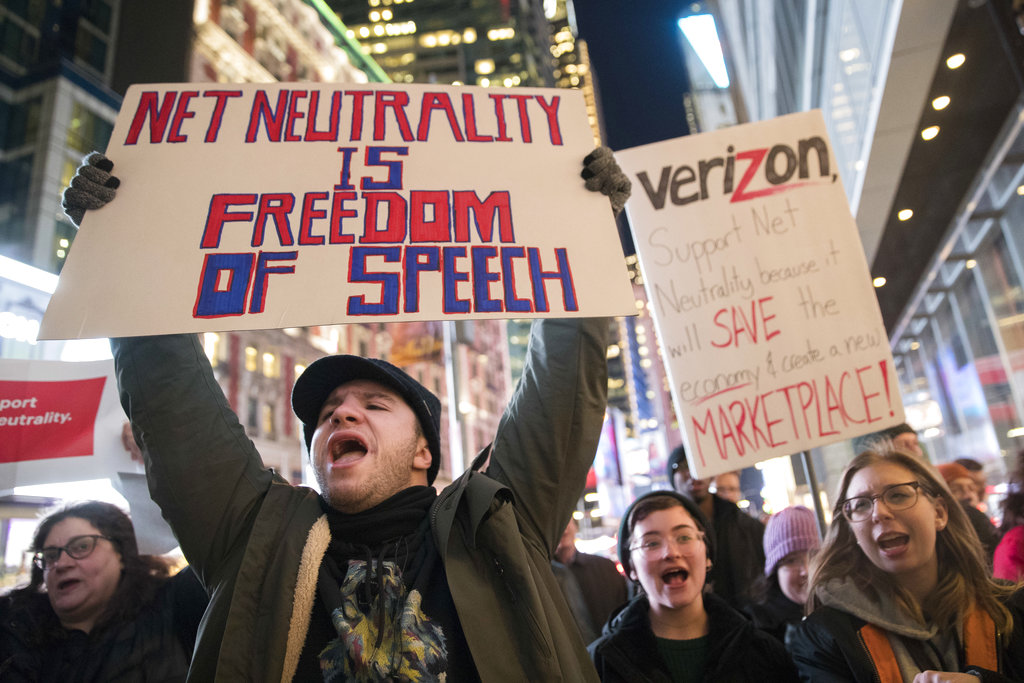What’s the big deal with net neutrality?
The Federal Communication Commission (FCC) will be voting on whether or not to uphold net neutrality regulations on Thursday.
The question of if net neutrality benefits America has been a hot topic among many internet users. The FCC commissioners’ vote has the potential to change the current framework of the internet.
What is often called the “net neutrality law” is a summation of regulations put in place by the Obama administration in 2010. The strengthening of those regulations in 2015 made internet providers subject to Title II regulations under the Telecommunications Act of 1996. The regulations dictate that broadband provides are “common carriers,” not “information providers.” Under current net neutrality law, providers like Comcast or Verizon are not able to provide faster or slower lanes of broadband to individuals, companies or organizations.
Ajit Pai, the current chairman of the five-person commission, proposed reviewing the net neutrality law in April 2017.

In this Friday, Aug. 9, 2013, photo, Federal Communications Commission Commissioner Ajit Pai speaks during an FCC meeting in Washington. Net neutrality is a simple concept but a dense and often technical issue that tech and telecom circles have argued over for years. The FCC has scheduled a vote to gut Obama-era rules meant to stop broadband companies like Comcast, AT&T and Verizon from favoring some websites and apps over others. Some net-neutrality supporters have become intensely personal in their advocacy for the rules. They have sent hostile comments to FCC Chairman Pai, both online and off. (AP Photo/Susan Walsh)
There are questions and strong opinions as to how the repeal of the net neutrality law and Title II regulations might affect not only companies in the United States but also high education institutions such as Utah State University.
“There’s no lack of commentary on both sides,” said Eric Hawley, the chief information officer of USU. “Effects of a net neutrality repeal nationally are not immediately clear. Much of the debate and discussion is around what could happen, or what might occur, with current cultural discourse tending to emphasize the more extreme ‘what ifs.’”
Hawley said he does not expect any direct short-term or medium-term impact at USU. USU’s internet connections, Internet2 and Utah Education Network, have yet to release a statement regarding the upcoming FCC vote.
“I think net neutrality is vital to an equal society and that repealing it would be a step backward,” said Sophia Harper, a USU student.
Another student, Andy Sticklan, said an internet with a neutral playing field encourages small business and protects consumers and citizens.
“Not using the internet isn’t an option anymore,” he said. “It seems clear to me that if we want to continue the freedom we’re enjoying on the internet now, we have to keep internet service neutral.”
 Mikayla Kapp photo
Mikayla Kapp photo Some students believe the upkeep of net neutrality is necessary to individual liberty and businesses; however, those who support the repeal of net neutrality argue the ends are the same.
“Net neutrality, despite its catchy alliteration, is about preventing ISPs (Internet Service Providers) from being able to optimize their services and increasing the entry barrier for new players in the industry,” said Brock Allen, a USU student.
Allen cited statistics from the FCC’s report “Internet Access Services” and said in 2009, 50% of the nation’s population had access to 2 or more ISPs providing the FCCs standard of Broadband. In 2015, that number dropped to 24%. Allen contributes this drop in access to the FCC’s official adoption of net neutrality in 2010.
“If you want to have more options as an individual, you need to let the market provide those alternatives,” Allen said. “Don’t give more power to the government, that’s the opposite of individual freedom.”
A major argument for net neutrality advocates is to make a profit.
“I’d like to believe that there are still businesses out there that look out for and care to a degree for the consumer, but businesses are in business because they make money and try to find ways to make even more money and greed can sometimes get the best of us,” said Chayce Campbell, a USU student.
Some supporters of net neutrality, such as Liz Howell and Kody Creger, are also weary of actions that major ISPs, such as Verizon, have taken to slow search services such as Google and to block the use of unlicensed tethering apps. Tethering is the use of a smartphone or laptop as a modem to obtain internet access for other devices.
“The internet should be an open and equal forum for anyone to access,” Howell said. “I believe that the abolishment of net neutrality would give too much money and power into the hands of the internet service provider.”
Another concern is that ISPs are supporting the repeal as a form of rent-seeking. However, backers of a repeal say that a free market will prevent an unreasonable rise in prices.
“If companies try to hike prices to where the middle class can’t afford it, that company will be forced to lower prices or take a huge loss in profit,” said Caleb Sessions, a USU student. “However, we are currently in economical state where competition is derived by price. Currently it’s who can offer the lowest price to gain the most customers.”
It is unclear how a repeal of net neutrality will affect the market. Hawley said if net neutrality is rescinded, it will be important for people to review the specific cases that lead to the implementation of net neutrality.
“With net neutrality gone, those are sample cases where you might see something come back up. I do not believe that the way ISPs act will be stereotypical,” Hawley said.
— dillan.passmore@aggiemail.usu.edu
@dirtyghettopass

